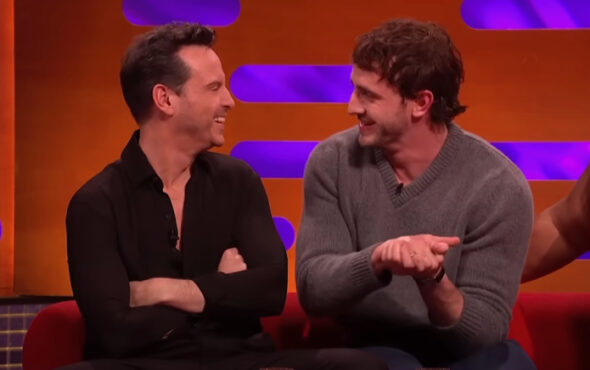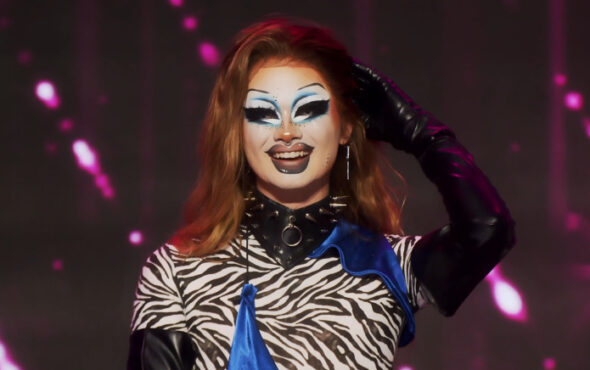
It’s 1975. You’re a 21 year old gay man and you’re looking to meet other men your age.
Maybe you want friendship – god knows how hard it is to find people like you, especially when you live outside London and didn’t go to university – or more likely you just really really want to have sex, in which case the same problems still apply. 1970s Britain is still a pretty homophobic place to grow up; in fact you remember being at school when the Sexual Offences Act finally stopped sending men with the same feelings as you to prison – so long as you’re over 21, live in England or Wales, and don’t get caught getting your end away in public or with more than one man. But that’s progress, of sorts.
You’ve always known you fancied men, which is remarkable in itself considering how it was never spoken about at school, and definitely not at home. There was the occasional programme on television – always late at night, and sometimes with a warning about its content – and stuff in the newspapers if you knew what to look out for. Somehow you emerged relatively unscathed by the propaganda swirling around which told you to get a girl, get married, and start your own family – perhaps because you were always the quiet type and no one really expected you to have much luck with the opposite sex.
You were a bit too young for the Gay Liberation Front – not that it made it as far as your small town, away from the big cities. And to be honest, you weren’t sure it was for you anyway – a bit too out there and radical for someone with just a few ‘O’ Levels and little else besides. You wish you’d stayed on and done your A Levels, but your dad said you had to get a job, and as long as you were under his roof you had to abide by his rules.
You heard about the Campaign for Homosexual Equality – perhaps in the gay magazines you secretly pick up from a bookshop in the city – and one day you finally pluck up the courage to find out if there is a local group in your area. You ring twice before you have the courage to speak. The third time you manage it. The man on the other end of the line has a kind voice and an understanding tone. Miraculously, he tells you there is a group! You hastily take down the details and thank him for his help. He wishes you good luck, and you really do believe he means it. You quickly call the number you’ve been given before you lose your nerve, and speak to a woman this time. She gives you the details of the next meeting. You promise to be there – more to yourself than to her – then hang up and leave the phone box. You have a telephone at home of course, but you didn’t want to get caught by your mum and dad, or your younger sister.

Finally, a week later, the wait is over. You’ve considered not going more than once – the woman you spoke to wouldn’t be able to find you; she only took your first name, no address. But finally, after working yourself up into a nervous wreck, you get into your car – your pride and joy – and drive the 40-odd minute journey to the next town over, carefully following the directions you wrote down from your dad’s A-Z earlier in the week. You pull up outside someone’s house – a very average looking house on an estate. This is the hardest bit.
You sit there for a long time, your hands on the steering wheel, breathing deeply. You’re really not sure if you can do it. You look at your watch. It’s only 7pm. If you left now you could be at home with your parents in time for an evening in front of the telly. You’ll just say your friends – who you said you were meeting – had to cancel.
You’ve made up your mind, you’re about to start the engine. Suddenly, there’s a knock on the window. You wind it down. A woman introduces herself, the woman from the phone, you realise. It’s always difficult the first time, she says, and before you know it she has guided you out of the car, and you’re walking towards the house. Scared, but somehow reassured. The rest of the evening is a blur, but a good one. You’ve met people – men and women, mostly older, but a few your own age. You finally realise what’s been missing from your life and this is it – connection. You feel much more comfortable about going back the next time and proud of yourself. The smile you have when you leave stays with you all week.
You don’t know it yet, but that day will change everything. You’ll make friends, meet their friends, and one day be introduced to the man, who, thirty years later, you’ll finally be able to say – in front of everyone who matters – those two precious words: “I do.”
The campaign for Homosexual Equality was the largest gay organisation in the UK, peaking in membership in 1979. It provided a network of safe spaces for gay men and women to meet and helped change the attitudes of gay people towards themselves. It also fostered the creation of countless love affairs, relationships, and friendships – a real social network.
Sebastian Buckle is a historian of homosexuality and sexual identity and the author of The Way Out: A History of Homosexuality in Modern Britain. He tweets from @sebbuckle



